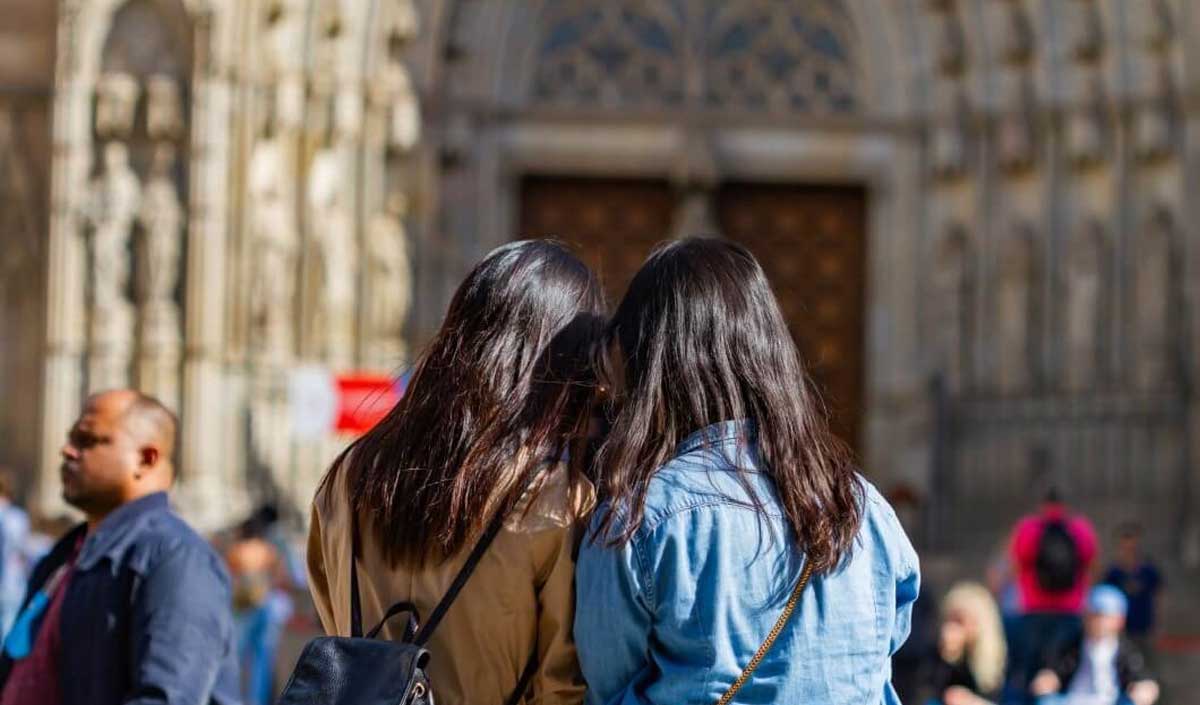Visitors once again fill the narrow streets of Barcelona’s Gothic Quarter as global travel recovers from the pandemic, sparking renewed tensions around mass tourism in the Spanish port city.
In April, including the long Easter weekend, hotel occupancy in the city rose to nearly 85%, close to pre-pandemic levels, according to the Barcelona Hoteliers Guild.
“More and more cruise ships, more and more tourism, more and more massification,” says Marty Cuso, a high school biology teacher who has long opposed the intrusion of mass tourism into downtown.
After nearly 12 million visitors to the city’s hotels and tourist apartments in 2019, the number of tourists has fallen by 76.8% in 2020, reflecting a decline across Europe. The pandemic has also shown the dangers of an “economic monoculture based on tourism”. Most of the residents who worked in the tourism sector found themselves out of work overnight. Before the pandemic, the number of tourists arriving in Barcelona was on the rise, and before the health crisis, the tourism sector accounted for about 15 percent of the economy of Spain’s second-largest city.
out of control
The tourist boom has sparked a backlash, with regular protests including one in 2017 when vigilantes slashed the tires of an open-top tour bus and painted on its windshield.
Barcelona residents named tourism as the city’s main problem in a poll conducted the same year by the city council.
“We have to change the model to reconcile the two worlds. We cannot have a city of tourists on one side and a city of locals on the other,” explains Francesc Muñoz, head of the urbanization observatory at the Autonomous University of Barcelona.
With the terraces once again filled with sangria-drinking tourists, Barcelona’s left-wing city council recently said it was planning new measures to pacify the area. Access to the busiest places may be restricted and tour bus traffic will be regulated.
The Barcelona City Council has already cracked down on illegal listings on the websites of online rental companies such as Airbnb and banned tour groups from visiting the historic La Boquería market during peak hours.
“Tourism is an important economic, social and cultural asset for Barcelona,” said Xavier Marse, the city’s tourism advisor. We need to maximize the benefits and control the damage. “This is a debate that all European cities are having,” he added.
Finding a balance
Marse rejected the argument that the city did not use the two-year slump in arrivals due to the pandemic to change the city’s tourism model.
“Two years have not been wasted. It is very difficult to solve the problems of tourism when there is none,” he said.
The authorities understand the concerns of residents but believe that formulas must be found to support activities that support many residents and ensure that a balance is found.
Experts in the fight against mass tourism note that no one is demanding a complete abandonment of tourism. Tourism will always exist, but the city must be diverse and tourism must coexist with other economic and social activities.

